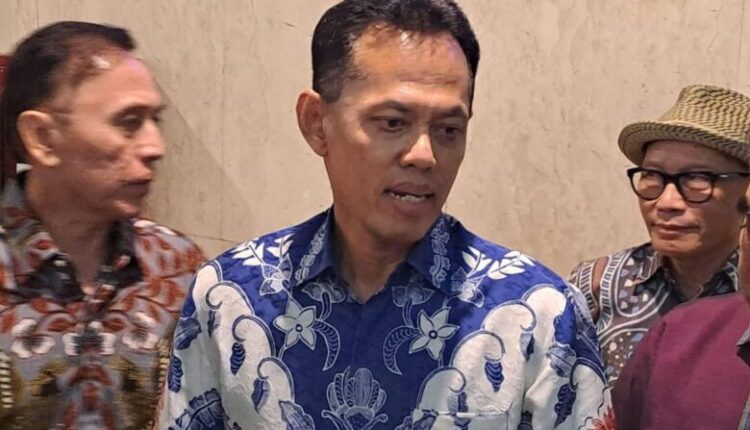Inter-Institutional Collaboration is the Key to Effective Eradication of Online Gambling
By: Ratna Soemirat
Online gambling has become a serious threat to Indonesian society, especially with the high transaction value reaching IDR 900 trillion in 2024, as expressed by the Coordinating Minister for Political and Security Affairs, Budi Gunawan. This threat is increasingly urgent because the majority of the 8.8 million online gamblers come from the lower middle class. In facing this challenge, the government needs to prioritize cross-sector coordination and collaboration to break the chain of online gambling addiction and protect the community.
Coordination between institutions is a key element in eradicating online gambling. Minister of Communication and Digital, Meutya Hafid, has held a meeting with the Head of the Special Investigation and Development Control Agency (BBPIK), Aries Marsudiyanto, to discuss strategies for handling this problem. In the meeting, Aries stated that although the handling of online gambling has shown progress, its eradication must be continued to the roots. This shows an awareness of the importance of cooperation between institutions to achieve optimal results.
One of the important aspects discussed in the meeting was the readiness of information technology (IT) in various ministries, institutions, and related agencies. Hardware and software updates are the main focus to ensure efficient, fast, and transparent governance mechanisms. According to Aries, qualified technology not only helps eradicate online gambling, but also improves the overall performance of the Ministry of Communication and Digital (Komdigi).
In addition, collaboration with financial institutions is also a strategic step. Blocking bank accounts and e-wallet accounts related to online gambling transactions is one of the concrete steps that have been taken. This step not only cuts off access for online gambling perpetrators, but also reduces the appeal of this illegal business. However, this action requires intensive supervision and coordination between Komdigi, the Financial Services Authority (OJK), and banking institutions to ensure its effectiveness.
The government has also taken innovative steps by cutting off internet access to/from countries that are centers of online gambling operations, such as the Philippines and Cambodia. This step is clear evidence that eradicating online gambling requires a cross-border approach that involves cooperation with international authorities. In addition, blocking sites containing online gambling and free VPNs are part of an equally important digital strategy.
The government’s commitment to eradicating online gambling is also reflected in Meutya Hafid’s statement, which emphasized that her party will carry out a memorandum of understanding (MoU) to oversee Komdigi programs so that they are on target and efficient. The principles of transparency and efficiency, as emphasized by President Joko Widodo, are the main guidelines in implementing these programs. This step shows the importance of good governance to ensure that all efforts made truly provide benefits to the community.
However, coordination alone is not enough. Eradicating online gambling also requires a preventive approach that involves public education. With the majority of online gamblers coming from the lower middle class, eradication efforts must be accompanied by programs that can raise awareness of the negative impacts of online gambling. In addition, the government also needs to provide alternative positive activities that can divert people’s attention from gambling activities.
In this context, collaboration with civil society organizations and the private sector is important. For example, digital platforms such as social media can be involved to disseminate anti-online gambling campaigns. In addition, collaboration with educational institutions can also be done to integrate digital education into the school curriculum, so that the younger generation is better protected from the threat of online gambling.
Eradicating online gambling is also not free from challenges, especially in dealing with perpetrators who are increasingly sophisticated in using technology. Therefore, innovation must be an integral part of the government’s strategy. The development of artificial intelligence (AI)-based tools to detect and block online gambling-related content can be an effective solution. In addition, investment in training a workforce with expertise in cybersecurity is also an urgent need.
In facing this challenge, the government cannot act alone. Aries Marsudiyanto emphasized the importance of improving various aspects of coordination with Komdigi. This includes strengthening the public reporting mechanism which has so far been one of the main sources of information in detecting online gambling activities. By actively involving the public, the government can create a more inclusive ecosystem in efforts to eradicate online gambling.
Ultimately, eradicating online gambling is not just about cutting off access or closing illegal sites, but also about creating a safe and healthy digital environment for the community. Cross-sector coordination and collaboration are key to achieving this goal. With a holistic approach, involving technology, education, and inter-agency cooperation, the government can address the challenges of online gambling more effectively. The community also needs to continue to be involved in this effort, so that together we can protect future generations from the negative impacts of online gambling.
*) Social Problems Researcher – Nusantara Social Studies Institute
